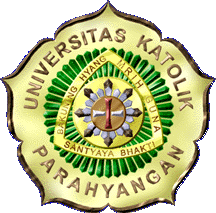
MENU UTAMA |
|
See You at the First Java Overland Inter-Varsity Debate Championship FTI Unpar
All contents Copyright © 1997 Student Board of The Faculty of Industrial Technology.
Parahyangan Catholic University. All rights reserved.
Designed, CGI Programming, and content by :
Hadeli
Suggestions and comments about it may be directed to:
WebMaster FTI